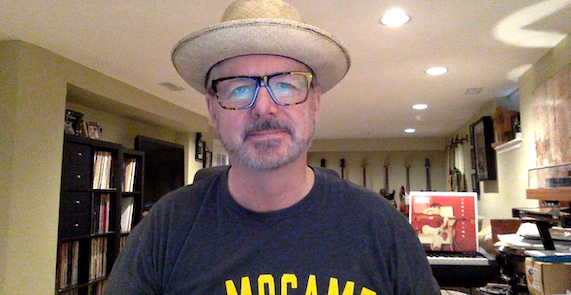Liner Notes
As many of you know, from listening to past episodes of #TheSpaceinBetween and our music series, #PasstheJam, I'm not a big fan of music services like Spotify and Apple music, as a primary way to discover and learn about music and musicians. To me, these services take away that important element of learning, self discovery, research, and adventure of coming across something you've never heard before and going, "wow I really love that. I'm going to go out and explore this avenue of music or these musicians; I'm going to hunt down their records" When I was younger and really got into music, particularly in the late seventies and early eighties, the way I would discover new music was by going to the record store, buying a record and listening to it when I got home, while reading the liner notes.
Until recently I didn't realize how important those liner notes were in terms of my music education. They provided the historical context for what I was listing to; the history of the band; the band members, and the particular album I might be listening to at the time. I would use these liner notes as a jumping off point to explore new music. I would read the liner notes, and I would look at the personnel playing on the record and I would go," I really love that guitar work, I wonder who's playing that?", and it might be a guy like Freddy Robinson (Who I actually discovered this way by reading the liner notes of what is still one of my favourite live records, Jazz / Blues Fusion by John Mayall) So the next time I'd go to the record store. I would hunt for solo albums by Freddy Robinson. This process was iterative and lead to further discoveries. Liner notes became an integral part my learning process about music.
The problem I have with Spotify, Apple Music and various other platforms, is they use an algorithm, which replaces the human component of music discovery. If you like James Taylor and you start to listen to James Taylor on Spotify, then the next thing you know, Spotify is recommending artists who sound similar to James Taylor. It might be Cat Stevens or Ben Howard, or somebody like that, but you're no longer involved in the process. Now you've got an algorithm that's doing it for you, but by the very nature of algorithms, they tend to restrict your listening to particular genres and "nearest neighbours". They don't provide any way for you to go beyond that; to take a risk, to try something new.
And while you can still use these services to search for all those old songs, you wish you still had in your record collection, you're still being limited In terms of future discoveries. You don't have that launchpad, that liner notes provided.
These days when I'm over at people's homes listening to their music on playlists on their Ipods or on Spotify or Apple Music, I find there's a general vanilla quality to it all - everything seems to blend together and I don't get that musical backstory that I'm always looking for, that liner notes provided.
I find myself always saying "who played that guitar solo? - that was brilliant!" or "that sax solo was so mellow, I just love it - who's that?" And they look at me with blank stares because they don't know. While I can certainly, if I remember, go home, and look up the song, and the album on Google and find the information about the record; who played on it; when it was made and so on and so forth, I'm not getting the story. The people that wrote liner notes were serious fans. They were collectors and historians, and these qualities were reflected in the liner notes they wrote.
Recently I was cleaning out my garage and found a bunch of old records dating back to the 1960s, and I started to read the liner notes, and realized how much I miss them.
So for this episode of the space in between, I thought I would share some with you. It's the story of the late great Brownie McGhee and Sonny Terry performing live at the bunkhouse in Vancouver, British Columbia.
This episode is dedicated to George Hoefer, the writer of these liner notes.
George Hoefer passed away in 1967, only two years after they were written. And unfortunately we no longer have #SonnyTerry and #BrownieMcGhee with us. Sonny Terry passed away in 1984 and Brownie McGhee in 1990, but their memory lives on in their records, and through these stories created by all those great writers of liner notes ... and hopefully through this episode of #TheSpaceInbetween... For What it's Worth.
Click HERE to Listen to "Liner Notes"




Comments
Post a Comment